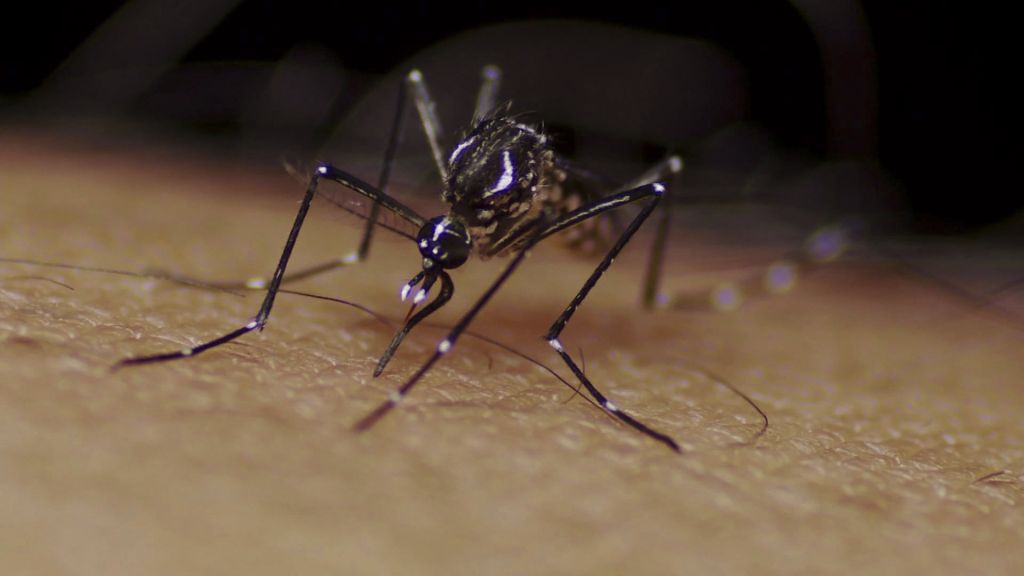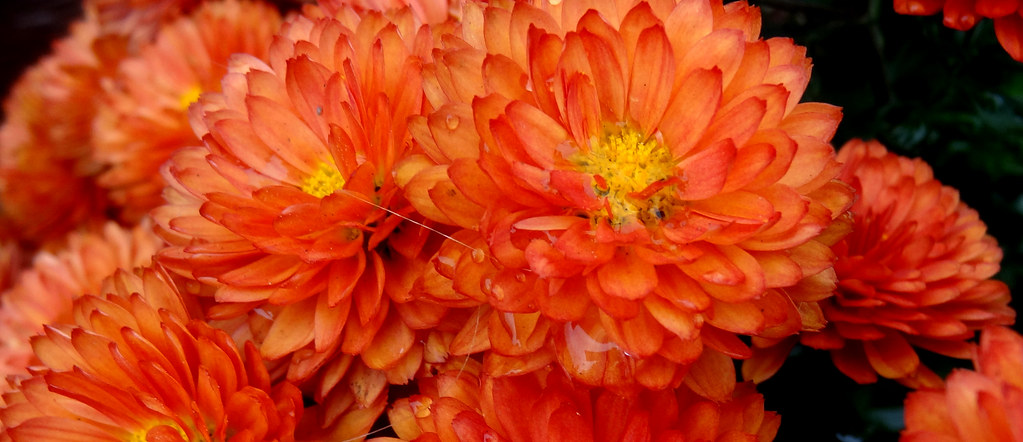Controlling mosquitoes on a Florida patio is essential for a comfortable and enjoyable outdoor experience. Mosquitoes are not only annoying but can also transmit diseases like West Nile virus and Zika virus. Here’s a brief summary of effective mosquito control measures for a Florida patio:
- Remove standing water: Mosquitoes breed in stagnant water, so the first step is to eliminate any sources of standing water around the patio. Regularly empty and clean bird baths, flower pots, gutters, and any other containers that may collect water.
- Use mosquito repellents: Apply EPA-approved mosquito repellents containing DEET, picaridin, or oil of lemon eucalyptus to exposed skin when spending time outdoors, especially during dawn and dusk when mosquitoes are most active.
- Install screens: Use fine mesh screens on windows, doors, and patio enclosures to prevent mosquitoes from entering the living spaces while still enjoying the fresh air.
- Citronella candles and torches: Citronella candles or torches can help repel mosquitoes with their strong scent. Place them strategically around the patio to create a mosquito-free zone.
- Mosquito traps: Consider using mosquito traps that use attractants like CO2 and heat to lure mosquitoes and then trap them. These devices can help reduce mosquito populations in the immediate vicinity.
- Fans: Running fans on the patio can create a gentle breeze that makes it difficult for mosquitoes to fly and land, helping to keep them away from the area.
- Keep the patio clean: Regularly clean the patio area and remove any debris that could potentially hold water. Mosquitoes can breed in even small amounts of standing water, so keeping the area clean is crucial.
- Plant mosquito-repelling plants: Some plants, like citronella, lavender, and marigolds, have natural mosquito-repelling properties. Incorporating these plants into the patio landscape may help deter mosquitoes.
- Professional pest control: In severe cases, it might be necessary to consult with a professional pest control service to assess the situation and implement more targeted mosquito control measures.
By following these mosquito control practices, residents in Florida can create a more mosquito-free and enjoyable patio environment.

What Attracts Mosquitos in Florida?
Mosquitoes in Florida, like those in other regions, are attracted to various factors that make them thrive and seek out hosts for blood meals. Some of the key attractions for mosquitoes in Florida include:
- Warm and Humid Climate: Florida’s subtropical climate with its warm temperatures and high humidity provides an ideal environment for mosquitoes to breed and develop.
- Standing Water: Mosquitoes require standing water for breeding. Florida’s abundant rainfall, coupled with its numerous lakes, ponds, swamps, and marshes, creates plenty of breeding sites for mosquitoes.
- Vegetation: Mosquitoes often seek shelter in dense vegetation, including tall grasses, shrubs, and trees, where they can rest and hide during the day.
- Bodies of Water: Besides natural bodies of water, such as lakes and rivers, mosquitoes are attracted to artificial water sources like swimming pools, bird baths, and pet water bowls.
- Carbon Dioxide (CO2): Mosquitoes are attracted to the carbon dioxide exhaled by humans and animals. They can detect it from a significant distance, which leads them to their potential hosts.
- Body Heat: Mosquitoes are drawn to the heat generated by warm-blooded animals, including humans. The warmth indicates a potential blood source for the female mosquitoes, which require blood to produce eggs.
- Lactic Acid: When we exercise or perspire, our bodies release lactic acid, which attracts mosquitoes. This is why people who are physically active or sweaty may be more prone to mosquito bites.
- Floral and Fruity Scents: Certain scents from flowers and fruits can also attract mosquitoes. Perfumes, lotions, and scented products may make individuals more appealing to mosquitoes.
- Dark Clothing: Mosquitoes are more attracted to dark-colored clothing, as it retains heat and contrasts against the background, making it easier for them to locate potential hosts.
- Blood Type: Some studies suggest that people with certain blood types, such as Type O, may be more attractive to mosquitoes than others.
It’s important to be aware of these factors, especially when spending time outdoors in Florida, to take necessary precautions and reduce mosquito exposure, such as wearing repellents, using screens, and eliminating standing water around your living areas.

What Plants can Help Keep Mosquitos Away from my Florida Patio Garden?
Several potted plants in Florida have natural mosquito-repelling properties and can help keep mosquitoes away from your patio or outdoor living spaces. Incorporating these plants into your potted garden can serve as a natural and eco-friendly way to deter mosquitoes. Here are some Florida potted plants known for their mosquito-repelling qualities:
- Citronella: Perhaps the most well-known mosquito-repelling plant, citronella has a strong and distinct fragrance that mosquitoes dislike. The plant releases citronella oil, which can help mask the scents that attract mosquitoes.
- Lavender: Lavender’s pleasant aroma is loved by humans but detested by mosquitoes. Planting lavender in pots can add beauty to your patio while keeping mosquitoes at bay.
- Marigold: Marigolds contain pyrethrum, a natural insect repellent, and are known to repel mosquitoes, as well as other garden pests.
- Rosemary: Rosemary is not only a popular culinary herb but also has mosquito-repelling properties due to its strong scent.
- Basil: This herb is not only great for cooking but also emits a scent that naturally deters mosquitoes.
- Peppermint: The strong fragrance of peppermint can help mask the scents that attract mosquitoes, making it a useful addition to your potted plant collection.
- Catnip: Catnip contains a compound called nepetalactone, which mosquitoes find repulsive. However, if you have cats, be aware that they might be attracted to catnip.
- Lemon Balm: Lemon balm, with its lemony scent, is another plant that can help keep mosquitoes away.
- Geraniums: Scented geraniums, such as lemon-scented or citronella-scented varieties, can act as natural mosquito repellents.
- Chrysanthemums: Chrysanthemums contain natural insecticides known as pyrethrins, making them effective at repelling mosquitoes and other pests.
When creating your mosquito-repelling potted garden, consider placing these plants strategically around your patio or outdoor seating areas to maximize their effect. Keep in mind that while these plants can help reduce mosquito presence, they might not eliminate mosquitoes entirely. For complete protection, you can also combine these plant choices with other mosquito control measures, such as using mosquito repellents and eliminating standing water.

My name is Kevin. I’ve been patio gardening in Florida for about 8 years, and for another 20 before that in New York. Happy to have you here on my website!

Leave a Reply